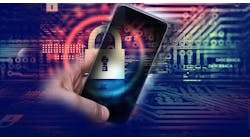NCPA Testifies Before HIT Policy Committee about E-Prescribing
Alexandria, Va. (Jan. 25, 2010) – NCPA submitted written testimony this morning at the Health Information Technology (HIT) Policy Committee Information Exchange Workgroup hearing on the experiences of independent community pharmacy in accepting e-prescribing from physicians. Also testifying in person on behalf of independent community pharmacies was Baeteena M. Black, D.Ph., the Executive Director of the Tennessee Pharmacists Association and President of the National Alliance of State Pharmacy Associations. Dr. Black, one of several health care experts and providers testifying, presented her comments on the first of three panels, entitled “E-Prescribing Today: Adoption Successes & Challenges, Part 1”. Dr. Black provided real life expertise and supported and expounded upon the testimony of NCPA.
“Community pharmacists have a vested interest in making e-prescribing work because it potentially provides more accurate and faster electronic transmittal to pharmacists of computerized prescription information than written prescriptions,” said Bruce T. Roberts, RPh, NCPA Executive Vice President and CEO. “However, challenges remain in the adoption and implementation of this technology, which is why I hope our recommendations to the Information Workgroup and the HIT Policy Committee are ultimately embraced.”
NCPA’s statement started by saying, “NCPA has always been a strong advocate for e-prescribing and we have spearheaded its growth by forming, along with NACDS, Surescripts, which is the nation’s largest electronic prescribing network.” While the volume of electronic messaging has increased from 120 million to 800 million over the last three years, Surescripts reports that the percentage of independent pharmacies that can currently accept electronic prescriptions (i.e., are “connected”) is only 60 percent.
NCPA outlined the benefits of e-prescribing for pharmacists, while noting problems that it believes need correcting
“Successes include generally positive patient acceptance and improvement in work flow for pharmacists – though calling back prescribers to verify or correct incomplete information on electronic prescriptions can sometimes be time-intensive and negate the original intent of e-prescribing. We believe that the independent pharmacy community stands ready to work with HHS, DEA, physician groups and others to address the successes and challenges outlined in this statement so that we can all accelerate the development of a robust system of e-prescribing.
“Additional challenges include installation and transactions costs, the costs associated with training staff and having to call back physicians regarding incomplete information on prescriptions, the compatibility of technology systems, and the need to have two-way communications with prescribers. The reality is that some pharmacists and pharmacies – particularly independent ones — are facing significant cost challenges in implementing e-prescribing. Actions taken by federal and state authorities should reflect those requirements and incentives that will firmly encourage the implementation of an effective, robust system of e-prescribing. While independent community pharmacists support the growth and development of e-prescribing, the critical challenge – and key to its improved success — is to grow it responsibly.”
NCPA offered several remedies to strengthen e-prescribing and remove any remaining impediments that prevent its full potential from being realized. NCPA’s top suggestions include:
- Providing grants and creating incentives to offset the burdensome implementation and transaction fee costs, especially considering that most of the current financial incentives are targeted only to physicians.
- Changing the communication system for e-prescribing that is designed for physicians to communicate the prescriptions to pharmacists, but doesn’t allow pharmacists to communicate back to physicians. Thus, when any problems arise, the pharmacists have to find other time-consuming avenues to clarify matters, which is why a “two-way” communications system should be created.
Strengthening the Centers for Medicare and Medicaid Services’ (CMS) e-prescribing participation requirements for incentives because, as currently constructed, physicians will not be incentivized to increase their current low levels of participation.

